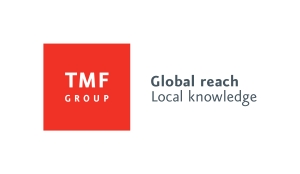Event Report: Geostrategic Outlook for Asia Seminar
On February 17th, The Japan Society and the Canadian Chamber of Commerce in Japan (CCCJ) in partnership with the Sasakawa Peace Foundation and the National Association of Japan-America Societies (NAJAS) presented an online seminar that highlighted key geostrategic challenges in Asia;
- Economic security: balancing trade relations with China and promoting international standard setting for new technologies;
- Research & Development: effective R&D coordination between US-Japan and developing a larger innovation ecosystem in Asia;
- Integrated deterrence: strengthening cooperation between allies beyond military activities and the importance of the QUAD for economic security in the region.
Peter Kelley, President of NAJAS, opened the discussion with an introduction to expert speakers; James Schoff, Senior Director of the US-Japan NEXT Alliance Initiative, specialized in security issues related to US and Japan; and, Professor Watanabe, Professor at the Faculty of Global Studies at Sophia University.
James Schoff highlighted new currents in the global economy; a new phase of globalization, intense power competition between US-China which coincides with the fourth industrial revolution where new technologies hold information power. Japan and Canada are important players in this discussion, as governments, businesses, and universities play a key role in managing strategic priorities. A key priority for the US in Asia includes integrated deterrence; strengthening cooperation between allies is essential to the Biden administration when it comes to issues of foreign policy. This is where the QUAD comes in - a security dialogue between US, Japan, India, and Australia. A compatible strategy for economic security is needed, but the policy approach for each QUAD member will differ given various priorities locally and regionally.
Coordination in research and development between US-Japan is an emerging topic. US is a leader in R&D, and Japan funds the most R&D in the US compared to other foreign firms. However, there are no easy counterparts between US-Japan to coordinate R&D, as R&D flows from different departments in both countries. There are good relations between sub-divisions, yet James emphasized the need for improved coordination between US-Japan and like-minded countries to provide international standard setting for new technologies and create a larger innovation ecosystem in light of China’s product ecosystem dominance.
Professor Watanabe emphasized that China is the most important challenge Japan faces in Asia today. The pandemic exposed Japan’s (among other countries) high trade dependency on China, particularly in medical products and supplies. In 2021, China was the top trading partner for 120 countries; Japan’s share of imports and exports were dominated by China and the Japan Bank for International Cooperation ranked China as the most promising country for overseas businesses in the mid-term for Japanese manufacturing companies from 2010-2021. Japan’s key economic challenge is diversifying trade as China imposes security challenges including maritime advancement in the Senkaku Islands of Japan. Japan’s over-reliance on China has not changed much during the pandemic, as a high level of regional clusters are in China and it is difficult to increase clusters in other countries in a short time span. Japan needs to navigate its relationship with China without undermining economic benefits. The private sector plays an important role here.
During the Q&A discussion, Peter Kelley highlighted issues of importance including next steps of the QUAD in maintaining a free and open Indo-Pacific, possible counter measures in case of China’s invasion into Taiwan, and the need for standard setting in new technologies (e.g., 5G networks) to ensure like-minded countries are represented in decision making bodies.
The seminar welcomed a wide range of participants, including former Ambassadors, business executives, and scholars. CCCJ would like to thank Asami Okusawa from The Japan Society, Peter Kelley from NAJAS, and the McMillan Group for organizing this successful and informative event.





























